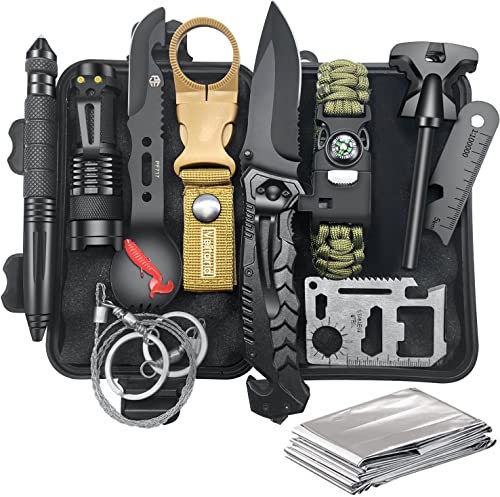Good OPSEC require constant vigilance.
https://www.theorganicprepper.com/predators-personal-information/
https://www.theorganicprepper.com/predators-personal-information/
Here’s How Easy It Is for Predators to Get Personal Information That Could Put YOU at Risk
September 24, 2019
by Daisy Luther
Imagine this conversation with a stranger in line at the grocery store.
You go out to your car and unlock it with your key that has your bright blue health club membership card on the keychain. As you’re loading the groceries in, the stranger has purchased the individual item and walked past your vehicle, waving at Jane who is still sitting in the cart.
- Stranger: Your daughter is so cute!
- You: Thank you, her name is Jane. She’s 3 years old.
- Stranger to Jane: Hi, Jane! Do you have any brothers and sisters?
- You: She sure does. We’re on our way to John Smith Private Elementary School next to pick them up.
- Stranger: Oh, my niece goes to John Smith. But it’s such a long drive for her parents, in the middle of that industrial area. They’re over in the Springside neighborhood.
- You: We live closer – we’re just in Autumnside. Well, nice talking to you! I have to run.
On the back of the car window is your stick figure family of a mom, 3 kids, and a cat. One stick figure child is on ice skates and the other has a soccer ball. You also have a sticker on your car for, let’s say, Beto O’Rourke or Kamala Harris.
What did they learn about you?
This seems like an innocuous encounter and it might be. But what if it wasn’t? What if the stranger was a criminal looking for his or her next victim?
This is a dangerous amount of information and makes it pretty easy to find you again.
- Your child’s name
- Where your older children go to school
- What activities your children attend
- What neighborhood you live in and whatever that implies about your socioeconomic status
- That you’re a single mom
- Where you go to the gym
- You probably don’t have a gun based on your political ideology
If there are only one skating rink and one soccer field in your area, it wouldn’t be hard to manipulate another “accidental” meeting. You’ll be at the school during drop-off and pick-up. You’ll probably go to the gym while the older children are at school and put Jane in childcare. It’s just a matter of watching the entrance for a few days to figure out your pattern. Jane, at 3, may feel like the stranger is safe since Mommy had a pleasant conversation with him or her. If the stranger “accidentally” runs into you in the neighborhood, there’s likely not to be a man in the house coming home any time soon and you won’t be armed.
They can also glean a pretty decent idea of your economic status based on the car you drive and the neighborhood where you live.
The interaction might not take place at the grocery store, of course. It could be at the playground, at school in the pick-up line, or at the coffee shop. The threat could be a man or a woman. It could be another parent. It could be someone who seems just like you or who seems vulnerable themselves. Any place you chat with strangers is a place someone could be looking at you as a potential target.
And actually, it doesn’t even have to be a stranger. Someone you see on a regular basis will automatically make you feel less guarded. But just because they’re familiar doesn’t mean they need to know too much about you.
Why would this stranger be stalking you?
It could be because of you – maybe you’re his or her “type. “It could be because he or she is involved in child pornography and you have three children. Maybe the stranger is a pedophile and you have three potential targets. Maybe the stranger is looking for a good house for the next home invasion robbery.
Maybe it’s perfectly innocent.
Whatever the reason, between a quick conversation in line at the grocery store, the stuff plastered all over your car, and what’s on your car keys, you have given a potential predator far too much information and you never thought twice about it.
Here’s how the conversation could have gone instead.
How could that interaction have gone in a way that didn’t give out information that makes you an easy target? You don’t have to be rude to avoid giving out too much intel on yourself.
You leave the encounter and you have had a courteous conversation without giving out any personal information in the exchange above.
- Stranger: Your daughter is so cute.
- You: Thank you.
- Stranger: Is this your only child?
- You: Nope. (polite smile) What about you? Do you have children?
- Stranger: No, just a niece.
- You: I bet you’re a fantastic uncle/aunt. Have a good day. Nice talking to you!
The stranger makes his or her purchase and follows you to the car. You have no bumper stickers on your SUV that show the members of your household, your political beliefs, or where your children are honor students.
Congratulations. You just made it far more difficult to find you and your children.
Why do we give out so much personal information?
This was a topic that was brought up both in the women’s violence avoidance and de-escalation course I just took with Dr. Tammy McCracken of Kore Self Defense in Ashburn, Virginia and the urban survival course that I took with Selco and Toby.
We, as a group, are not good protectors of our personal information.
I’m not talking about your credit card number or your social security number. I’m talking about the things that make you easy to locate for anyone who wants to find you. I’m talking about the things that make it easy to strike up a “common ground” conversation, like the activities your child is involved in or your political beliefs or even your favorite sports team.
Many of us are open books, and that isn’t a very safe way to live, especially when you get into the mindset of a predator.
The non-verbal cues are the clothes we wear (Molon Labe t-shirt, anyone?), the car we drive (bumper stickers, how expensive it is), and the information right at our front door (maybe it’s a sign issuing a warm welcome to the home of John and Jane Doe, along with Jack & Susie and the little dog, Spot.) Is your house “protected by Glock home security?” Great – now everyone knows there are guns and ammo, and that they’d better take you completely by surprise, maybe while you’re home alone in the shower.
There’s no reason in the world to provide all of this information to complete strangers yet people do it all the time.





















































